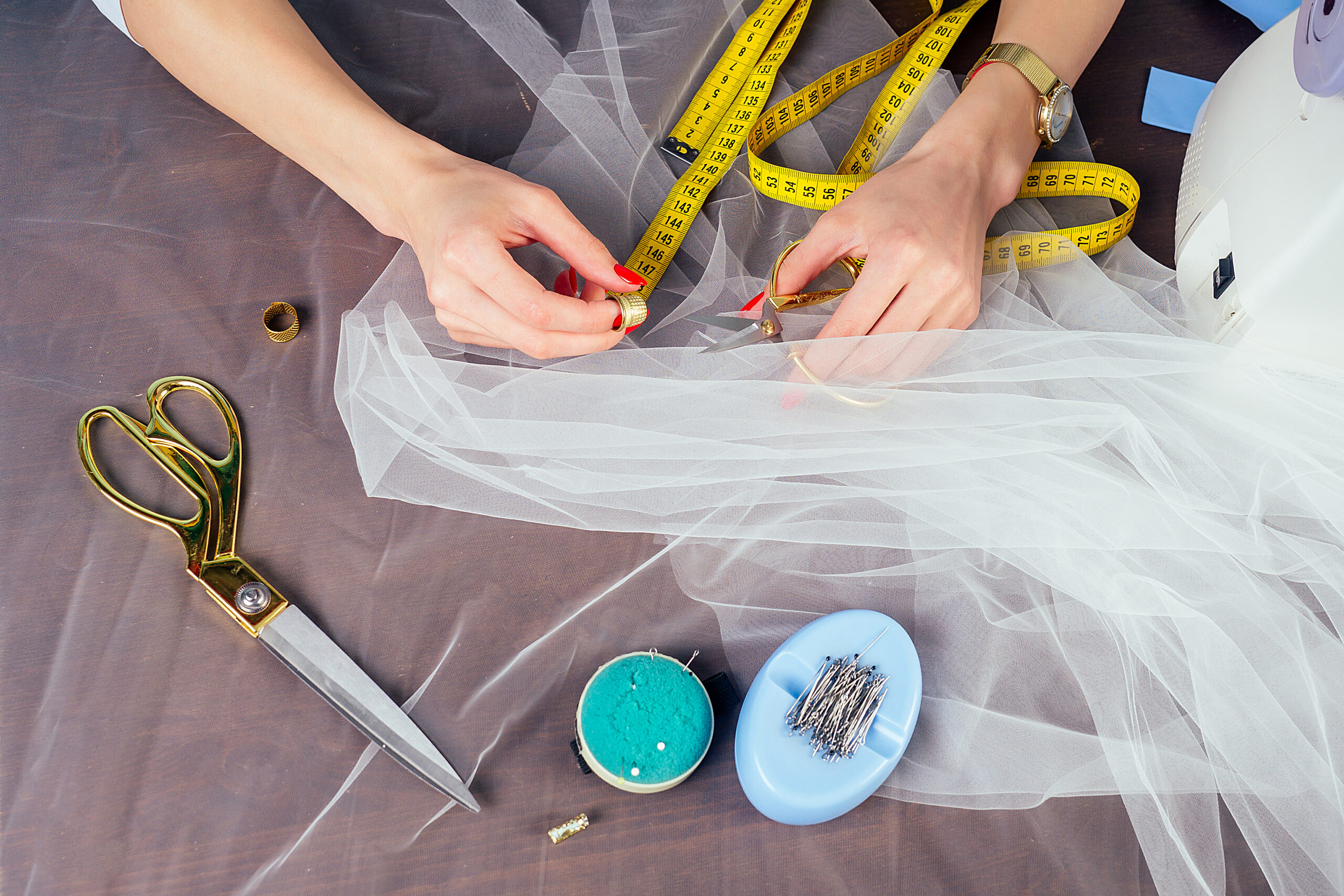Off-the-rack clothes aren’t for everyone. They surely look great when put on hangers or mannequins, but once you try them on, it’s often a different story. The sleeves might be too long, the waist might be too tight, or the hem might hit at an awkward length. But with clothing alterations, you can transform an ordinary outfit into something that feels tailored just for you. But to what extent can you realistically alter your clothes at home?
Anyone who’s ever attempted altering clothes on their own knows this job can be trickier than it seems at first glance. It involves skills, the right tools, and sometimes a lot of patience.
So, the question arises: is it realistic to handle clothing alterations on your own? And if so, how far can you really go with it? In this article, we’ll cover everything from basic alterations you can easily do at home to more complex modifications that might require a tailor’s touch.
Why Alterations Make All the Difference in Clothing Fit
Have you ever noticed how some outfits just look effortlessly perfect on certain people? Chances are, they take their outfits to the next level with clothing alterations.
Clothing alterations are changes made to the fit, style, or length of garments to better suit the wearer’s size and preferences. So, why do alterations make all the difference in clothing fit? Let’s break it down:
- It creates a tailored look – Well-fitted clothes follow the natural lines of your body, making you look more put together and stylish. Alterations can help you achieve that look!
- It enhances comfort and movement – When your clothes fit well, they’re more comfortable to wear. Alterations can eliminate those annoying fit issues, like a waistband that’s too tight or sleeves that are too long.
- It makes clothes last longer – Ill-fitting garments are more prone to damage because they’re often pulled or strained in awkward ways. Alterations can help distribute the stress more evenly across the fabric, and this extends the life use of your clothing items.
- It maximizes your investment – Investing in high quality pieces is always a good idea, but even the best garments can benefit from a little tailoring. Alterations can ensure your investment pieces look their best and serve you well for years.
- It’s a sustainable fashion choice – Choosing to alter your clothes instead of buying new reduces waste and the demand for fast fashion. Plus, it’s a great way to keep your wardrobe fresh without constantly shopping for new items.
Basic Alterations You Can Do At Home
You don’t need to be a professional tailor to make some effective adjustments to your wardrobe. With a little patience and the right tools, you can handle basic alterations that make a big difference in how your clothes fit and look. These DIY projects are perfect for those new to sewing.
1) Hemming Pants and Skirts
Hemming is one of the simplest alterations you can do at home. All you need is a needle and thread or a sewing machine. Measure the desired length, fold up the fabric, and sew a straight stitch along the edge. This works for pants, skirts, and even dresses.
2) Taking In the Waist
If your pants or skirts are a bit too loose around the waist, you can take them in. Pinch the excess fabric at the side seams or the back seam, then sew a new line to make the fit more snug. Remember to try on the garment first to ensure you take in the right amount.
3) Shortening Sleeves
Long sleeves that need a trim are easy to fix. Measure the length you want, mark it, and cut off the excess fabric. Fold the new edge, press it with an iron, and sew a straight stitch to create a new hem. This works for shirts, denim jackets, and coats.
4) Replacing Buttons
Buttons fall off, but they’re simple to replace. Match the new button to the size of the original, thread your needle, and sew it on through the existing holes. Make sure it’s securely attached and lines up with the buttonhole.
5) Fixing a Zipper
Replacing a broken zipper can seem daunting, but with a bit of practice, it’s manageable. Remove the old zipper with a seam ripper, pin the new one in place, and sew it using a zipper foot on your sewing machine. This is handy for jackets, pants, and skirts.
6) Taking in Side Seams
If a dress shirt is too baggy, you can take in the side seams. Turn the garment inside out, pin along the sides to mark where you want to take it in, and sew a new seam. This can make a huge difference in how a garment fits and looks.
7) Patching Holes
Small holes or tears can be patched with some basic sewing skills. Cut a piece of matching fabric slightly larger than the hole, place it behind the tear, and sew around the edges to secure it. This works well for jeans, shirts, blouses, and jackets.
8) Adjusting Straps
If the straps on your tops or dresses are too long, you can easily adjust them. Unpick the stitches holding the straps, shorten them to the desired length, and sew them back in place. This quick fix improves the fit and comfort of your garments.

Complex Alterations Best Left to Professionals
While some clothing alterations are simple enough to tackle at home, others are far more intricate and require a professional’s touch. These complex alterations require the expertise, experience, and specialized equipment professional tailors offer. Attempting these on your own can lead to frustration and potentially ruin your garment.
Let’s explore some of the more challenging alterations that are best handled by experienced tailors.
1) Restructuring Jackets and Blazers
Altering the structure of jackets and blazers is no easy feat. This involves adjusting shoulders, taking in seams, and potentially altering the lining. Professionals can ensure the garment maintains its shape and balance, giving you a polished, well-fitted look.
2) Altering Wedding Dresses and Formal Gowns
Wedding dresses and formal gowns often come with intricate details like lace, beading, and delicate fabrics. This means tailoring these garments requires a careful hand and a deep understanding of garment construction. Professional tailors can make adjustments without compromising the integrity of these special pieces.
3) Leather and Suede Alterations
Leather and suede are notoriously difficult to work with due to their thickness and tendency to stretch. But for professional tailors, it’s not too complicated since they have the right tools and techniques to alter these materials without damaging them. Whether it’s resizing a leather jacket or shortening suede pants, it’s best to leave these to the experts.
4) Taking In or Letting Out Complex Seams
Precision is key when it comes to taking in or letting out complex seams, such as those found in fitted dresses or tailored suits. A professional can ensure the alterations are symmetrical and maintain the garment’s intended shape and design.
5) Replacing Zippers in Heavy Fabrics
Replacing a zipper might look easy, but when it comes to heavy fabrics like denim or wool, it can become quite challenging. Professionals have the heavy-duty sewing machines and expertise needed to replace zippers without causing additional damage to the garment.
6) Tailoring Pleats and Tucks
Clothes with pleats and tucks require careful adjustment to maintain their design and flow. Professional tailors can alter these features without distorting the garment’s intended look, ensuring the pleats and tucks lay correctly and complement your figure.
7) Shortening or Lengthening Sleeves with Cuffs
Altering sleeves with cuffs, especially on dress shirts and jackets, involves more than just shortening or lengthening. Professionals can move the cuffs or reconstruct them to ensure the garment looks seamless and fits perfectly.
8) Adjusting Waistbands on Complex Garments
Adjusting waistbands on complex garments, such as fitted skirts or pants with intricate closures, can be tricky. A professional tailor can ensure the adjustment is secure and invisible in order to maintain the garment’s original style and functionality.
9) Altering Multiple Layers of Fabric
When dealing with garments that have multiple layers, such as lined dresses or coats, alterations can become complicated. Professionals can adjust all layers uniformly to ensure the garment hangs properly and looks polished.
10) Tailoring Knitwear
Altering knitwear, like sweaters and cardigans, requires specialized knowledge to prevent the fabric from unraveling. Professionals have the techniques to handle knits without damaging the fibers.
Refresh Your Outfits with Us – Contact The Cleaning Club!
Are your clothes feeling a bit outdated or not fitting correctly? Bring them back to life with expert alterations at The Cleaning Club, located right in the heart of Los Angeles. But our services don’t stop at alterations. We also provide top quality laundry and dry cleaning services for a complete garment care experience.
Servicing the vibrant communities across Los Angeles, California, we’re committed to offering convenience and excellence in every thread. Walk-in’s are welcome! We are open 7 am to 7 pm Monday – Saturday for your convenience! Just drop us an email at info@thecleaningclub.com or call us at 310-836-9700.
